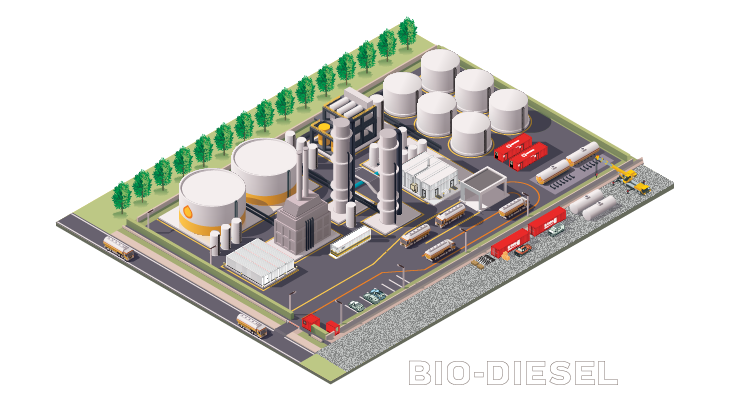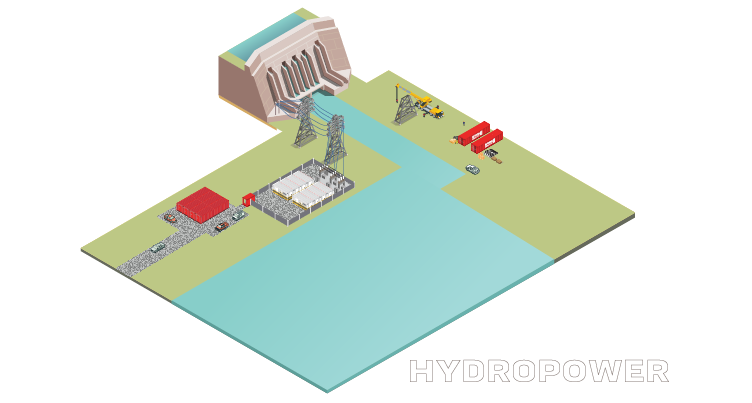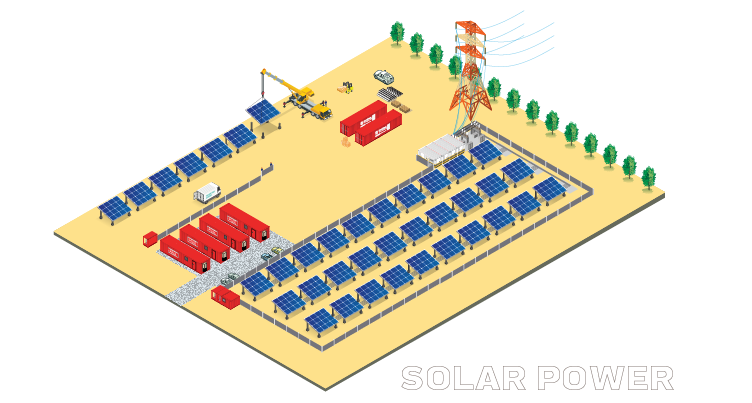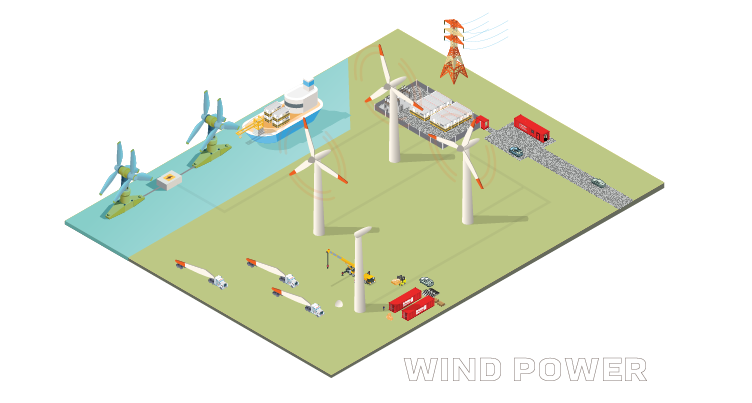RedGuard and Renewable Energy: How We Help in 2023
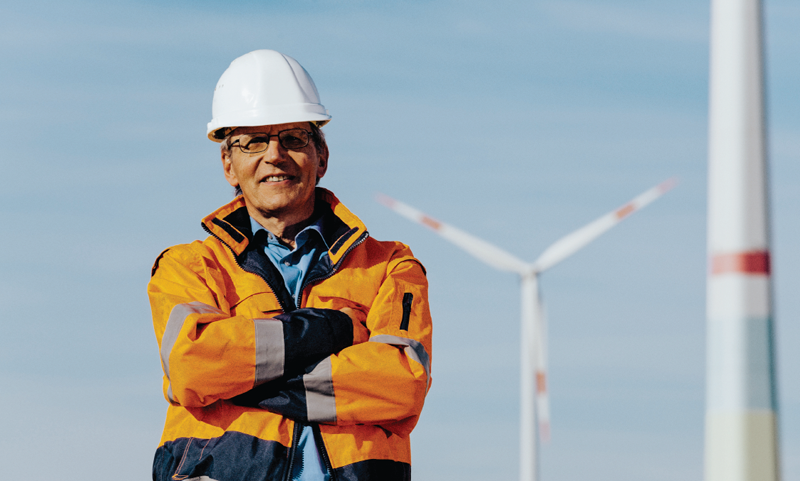

This blog was originally published March 8, 2021. This is a quickly emerging and growing market, so updates will be made periodically to reflect current facts and additional products.
RedGuard has had the good fortune to work in most of the major refineries and petrochemical plants in North America and internationally. We have appreciated doing our part to protect the lives of the workforce in these facilities.
At the same time, we are looking to a future where it is possible that oil and gas will not be as big a part of the overall energy mix. Renewable energy generated by solar, wind, hydropower, and biological sources of energy will continue to grow as we move to develop a more sustainable energy supply and reduce carbon footprints.
Where does RedGuard fit in the future of renewable energy?
Biological (Bio-Diesel)
- SafetySuite blast resistant control rooms
- SafetySuite operator shelters
- CoverSix security buildings for temporary or permanent onsite access control
- SiteBox Storage modular storage during construction (non-blast areas)
- LeaseFleet blast-resistant buildings during construction (blast areas)
- Specialist Services RedGuard process skids
- Specialist Services RedGuard technical buildings
- Engineering services / Siting analyses after converting areas to biodiesel
- RGDS storm shelters to keep your team safe during tornado activity
- VersaBilt Chemical for the safe storage and dispensing of hazardous chemicals
Hydropower
- Specialist Services RedGuard control room buildings
- Specialist Services RedGuard MCC and Switchgear buildings for pump controls
- SiteBox Storage mobile office buildings during construction
Solar Energy
- Specialist Services RedGuard energy storage buildings
- SiteBox Storage portable offices associated with solar array sites
- CoverSix security buildings for solar grid access control
- SiteBox Storage to provide onsite storage during construction
Wind Energy
- Specialist Services RedGuard energy storage buildings
- SiteBox Storage energy storage buildings
- SiteBox Storage mobile office buildings during construction
- CoverSix security buildings for wind farm access control
- Specialist Services RedGuard accommodation modules for offshore wind farm service vessels
Of course, the benefits of modular are the same, whether we are talking about a 500,000 barrels per day (BPD) refinery or a 1,000 megawatt (MW) solar array. The overall project schedule is reduced because the buildings are being constructed offsite while site work and plant installation are taking place. There is much onsite disruption associated with typical “stick-built” construction methods that require dozens, or hundreds of contractors to come and go from the site.
A modular building arrives ready to go with the final connection of services. Factory construction ensures meeting delivery schedule without delays from site problems, weather, or labor issues. All of the applications and products listed above benefit from quality systems and experienced engineers and craftspeople who build modular buildings each and every day.
Unfortunately, like almost everything else, the renewable energy industry has been set back by Covid-19. With overall energy demand at a low point, there is little interest in investing in large-scale renewable projects. Many offshore wind farms and large-scale solar projects were already funded and well underway when the coronavirus hit. Much of the investment in these projects relies on tax credits or other incentives that are certain to change under a new administration in 2021. It is likely that Covid-19 will get under control in 2021 and energy demand will increase, as will investment in renewables.
Researchers at Stanford have predicted that the world could run on renewable energy alone in 20 to 40 years. That is a wide range, but many countries continue to grow their renewable energy generated vs. total energy used. The leaders are Iceland and Norway, which already produce nearly 100% of their power from renewables. They are followed by Kenya, Uruguay, Sweden, Germany, China, the UK, and the USA. Here in the US, we currently generate about 18% of our energy from renewable sources. Politics will undoubtedly play a role in the investment and development of renewable energy in the US, and in all of these countries.
Interestingly, much of the investment in renewables is being made by the major oil and gas companies. With or without government incentive, many of them have pledged carbon reduction or even carbon-zero status in this century. Shell reports 11,000 gigawatt hours (GWh) of carbon-free energy including 1.6 GW of solar and 230 MW of wind. BP is cutting oil and gas production by 40% and investing $5B a year to “low carbon” projects. Total currently spends 3% per year ($500M) on renewables but expects to increase that to 20% over the next 20 years. ExxonMobil is advancing biofuels and developing carbon capture technology. Open an annual report from any major oil and gas company, and you will find some mention of renewable energy and carbon reduction.
Like our clients, the major oil and gas companies, RedGuard presents this blog to share our commitment to serving the renewable energy transformation. We are well known for renting our “red boxes” to major refineries and petrochemical plants and we will gratefully continue to provide excellent service to that market.
We also want to be known for offering modular solutions (blast or non-blast) for all types of energy producers worldwide. Instead of a “red box” in a laydown yard, picture 20 Specialist Services RedGuard accommodation modules housing workers on a windmill service vessel. Picture a CoverSix security building limiting access to a 5-acre solar array that provides power to a city in Europe.
Whatever the specialty modular requirement is: blast, non-blast, security, MCC/Switchgear, onshore or offshore, and for any renewable energy source, RedGuard has the modular solution you need.
Dean Alcott
Dean is the Market Development Manager for RedGuard and he has more than 25 years of experience with specialty modular structures. He has been heavily involved in transforming RedGuard from company that did business only in North America, to a global leader in the manufacture and supply of safe space.

